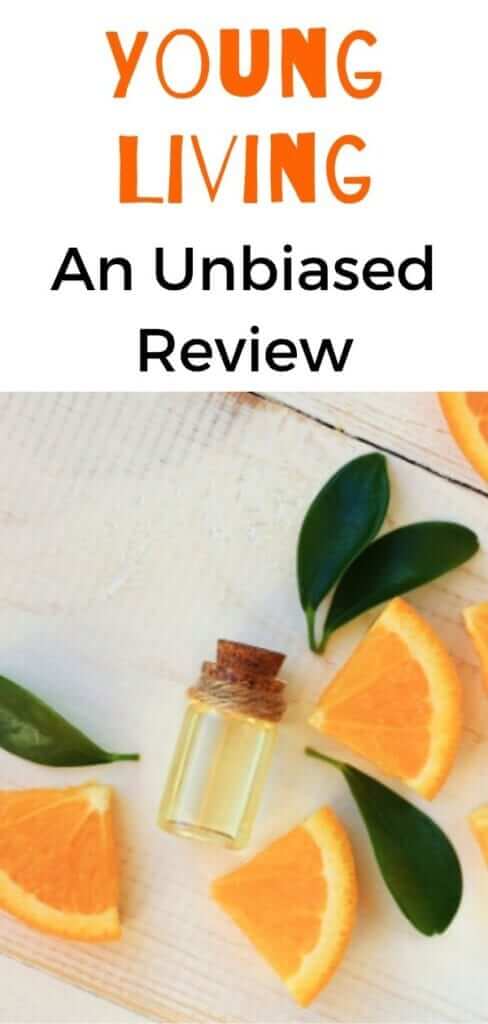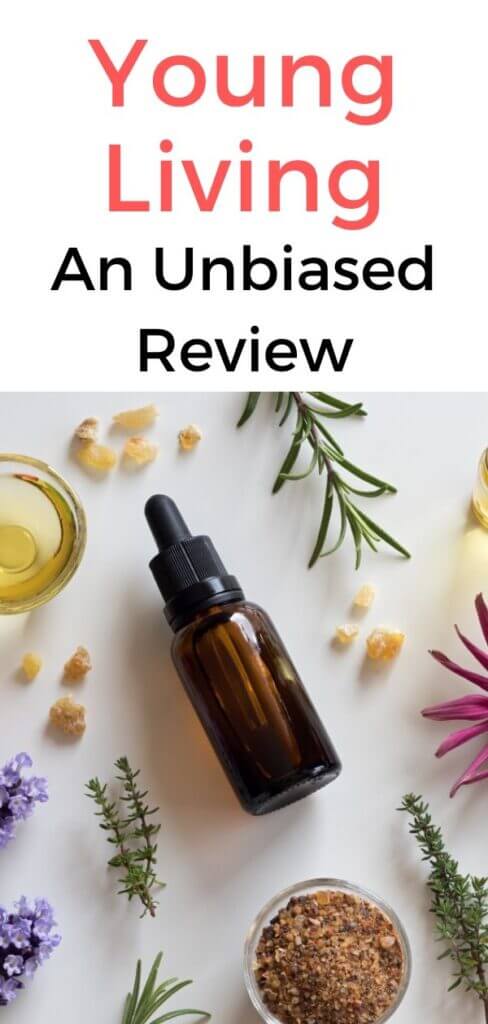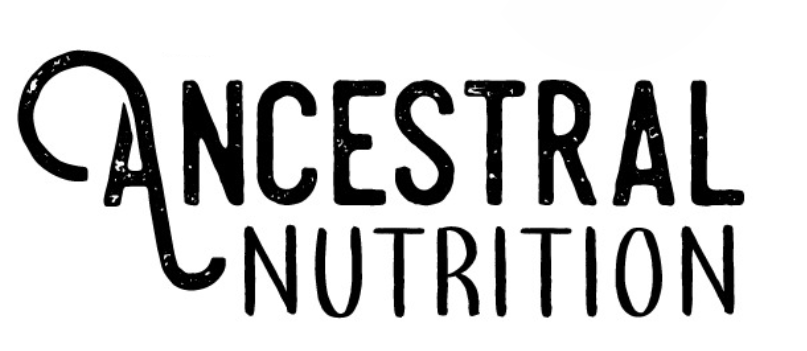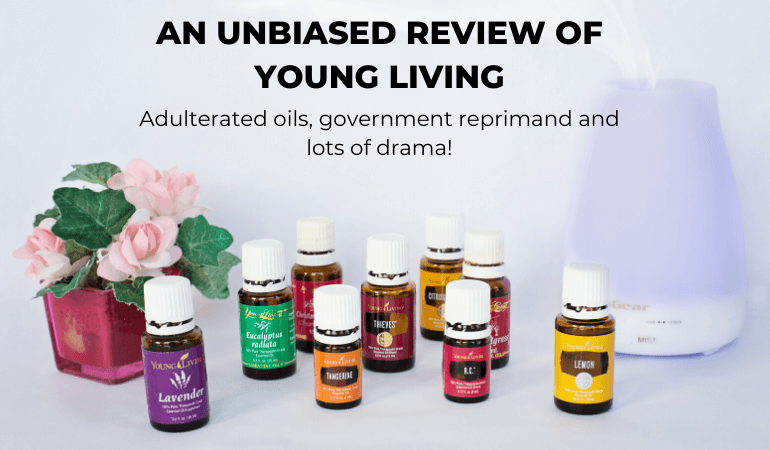An unbiased review of Young Living: Many people consider Young Living oils the best essential oils in the industry. But is Young Living a legitimate company? Are their essential oils organically sourced, safe and worth the price?
After my review of doTERRA, ya’ll inevitably requested an unbiased review of Young Living. Much like doTERRA, I like Young Living. I don’t love Young Living. I use Young Living (and doTERRA, but mostly Plant Therapy).
Upon starting research for this article, it quickly became apparent that there is a lot of drama surrounding Young Living. Much more than doTERRA. While I have used doTERRA more and am more familiar with their products, I have a lot of friends in Young Living and I’ve bought from them multiple times.
I’ve used Young Living Essential Oils but mostly used supplements and things that contain oils that doTERRA doesn’t offer, like Nigxia Red. I didn’t do a ton of research into YL because I never intended to sell with them (like I originally did when I started with doTERRA many years ago – though I quickly decided against doing this).
Here’s my review of Young Living Essential Oils:
A quick Google search on YL will yield quite a few stories about adulterated oils, wage gaps between male and female YL employees, if they’re actually “Seed To Seal,” and general ethics of the company.
In starting my research for this, I quickly realize essential oil companies and competition are very dramatic.

Let’s start with testing.
In contrast with doTERRA’s website and customer service (which I found incredibly vague), Young Living is quite detailed about their testing methods. As a fan of Plant Therapy, who is extremely open and detailed about their testing, I appreciate this.
From their website,
Product testing doesn’t take place exclusively within our two in-house labs. Young Living also works with more than a dozen of the world’s leading, independent, and accredited labs with highly skilled and trained scientists who specialize in advanced product testing.
Source
Third party testing is incredibly important. The issue is what I’ve read from other sources, who have personally sent their oils to be independently tested – and those came back as adulterated.
Adulterated Young Living Oils
I first stumbled upon this blog post from a former YL distributor. In short, this distributor was in several essential oil Facebook groups and became concerned when someone said they had an oil tested, it came back adulterated and insinuated that the brand was Young Living.
As a believer in YL and a distributor, he decided to have an oil tested to prove the first test wrong. As it turns out, the oil he sent in came back adulterated as well. Young Living had an incredibly disappointing response to this, which you can read here.
Now let’s discuss sourcing.
From what I can gather, it seems as though Young Living sold the idea that all of their oils were “Seed to Seal,” giving the impression that they themselves grew the plants.
Apparently this came into question during their lawsuit with doTERRA; after which they admitted they didn’t grow all of their seeds. They now state,
Our oils are sourced from our corporate-owned farms, partner farms, and Seed to Seal-certified suppliers. This empowers us to source conscientiously and with sensitivity to local communities and ecosystems.
Source
However, this was not always the case.
Sentencing and reprimand from the Justice Department.
In September 2017 Young Living was fined and officially reprimanded by the Justice Department for illegally harvesting and transporting rosewood and spikenard in violation of the Lacy Act.
Young Living has pretty good standards for sourcing their plants. On their website they boast about having the gold standard for compliance with the Lacey Act, which is pretty disingenuous – they only have the gold standard because they were in violation of the Lacey Act and forced to pay over $750,00 in fines and implement a comprehensive compliance plan.
From the Justice Department report, Young Living broke the law by:
- Illegally harvesting and transporting endangered rosewood from Peru.
- Distilling said rosewood essential oil.
- Illegally exporting spikenard from the United Kingdom; the spikenard originated in Nepal and was sold to a company in the UK. That company found the spikenard unsatisfactory. Young Living purchased it from them and exported it without a CITES permit. (CITES stands for Convention on International Trade in Endangered Species of Wild Fauna and Flora.)
- From 2014-2016, purchasing “rosewood oil from a supplier/importer in the United States without conducting sufficient due diligence to verify lawful sourcing of that oil.”

When this story broke, everyone was hung up on Young Living illegally obtaining rosewood; it’s almost as if they didn’t read the second half of the press release from the DOJ.
But there’s more that troubles me:
I find it particularly troubling not only that Young Living was illegally transporting and purchasing an endangered species, but that they purchased spikenard that another company didn’t even want. How high quality could the spikenard be?
Not to mention growers in these developing countries like Peru and Nepal are often not paid a living wage, work extremely long hours and are overall treated very poorly.
Additionally, they purchased rosewood from a supplier without verifying the sourcing of that oil – this directly compromises their “Seed to Seal” promise. They didn’t even know if it was grown legally, how could they have known if it was grown organically, if pesticides were used, if the farmers were treated well, if they earned a living wage? This flies directly in the face of everything the company stands for. And this didn’t happen 20 years ago. This happened in 2016.
It’s worth noting that Young Living fully complied with the justice department and even conducted an internal investigation. They turned over that investigation to the Justice Department willingly and hired outside counsel to assist with oversight and compliance.
Young Living Knowing Used Adulterated Oils?
Dr. Robert Pappas is the preeminent essential oil specialist. He is a chemist that focuses on the purity and efficacy of essential oils (among other things). During Young Living’s lawsuit with doTERRA, Dr. Pappas testified that Young Living was knowingly using adulterated oils.
Dr. Pappas was contracted by Young Living to test their “pure” jasmine oil. Dr. Pappas discovered high levels of dipropylene glycol, which he entered into an essential oil database. Instead of correcting this, Young Living urged Dr. Pappas to retract his findings.
Years later Dr. Pappas was hired again by Young Living under the farce that he was being brought in to improve their essential oil standards. Instead, when Dr. Pappas discovered high levels of methyl salicylate in the birch oil, he was once again asked to retract his findings.
Dr. Pappas concluded that he was not brought in to improve essential oil standards, but so that Young Living could use his name to promote their products (source).

Is Young Living Trustworthy?
Would I personally trust Young Living moving forward? I will not. Honestly, prior to doing the research and this deep dive into YL, I did trust the company. But the reality is that profit is often the bottom line. This is a billion dollar business.
I’m not saying YL isn’t trustworthy, I’m saying I am skeptical in light of all of this.
It’s also worth noting that Young Living has lost their Better Business Bureau accreditation. doTERRA has an A+ rating. Again, I do not sell doTERRA. But it’s worth noting their closest competition has this accreditation.
Young Living Products I use:
I do personally use some Young Living products. I like certain oils and they have products that other companies do not, which I appreciate. I really enjoy the Nigxia Red, although I have to admit I’m skeptical using it moving forward.
When it comes down to it, my favorite oil brand is still Plant Therapy, even over doTERRA. I don’t sell essential oils, I’m a holistic nutritionist and mom who wants the best for myself and my family. I am a researcher and after years of due diligence, I’ve found that Plant Therapy oils are of the highest quality, undergo a ton of testing, are responsibly sourced and well priced.
I’m incredibly surprised to have found out all of this information on Young Living, which is honestly quite damning. What has your experience been with Young Living? I’d love to hear from you!






